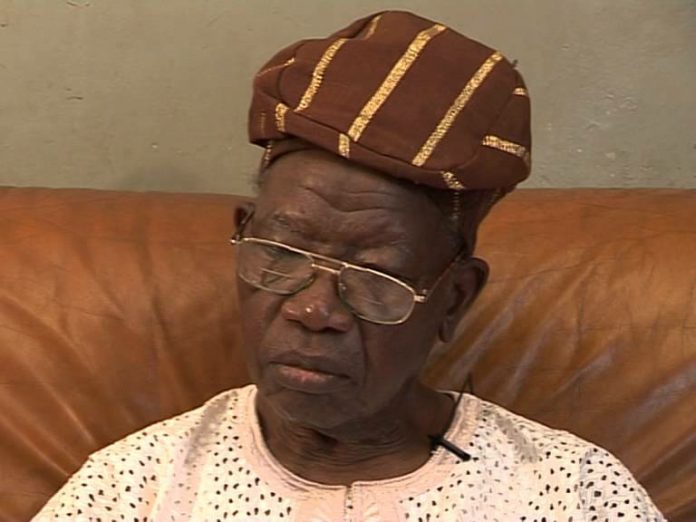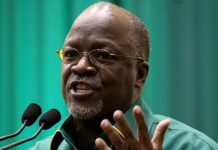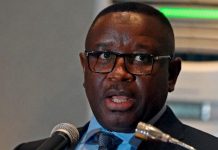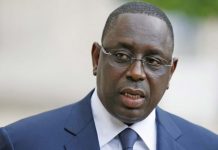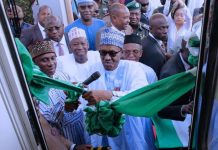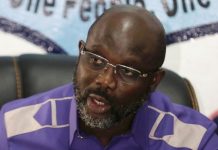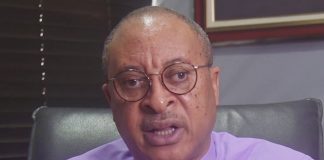Alhaji Lateef Kayode Jakande, LKJ, served as the Governor of Lagos State in the Second Republic, from 1979 – 1983. He was born on 23 July 1929, in the Epetedo area of Lagos state. The inimitable journalist, politician, administrator and technocrat, who is about to turn 90, also served as Minister of Works under the Sani Abacha military regime from 1993 – 1998.
LKJ, as he is fondly called, attended the Lagos public school at Enu-Owa, Lagos Island, and proceeded to Bunham Memorial Methodist School, Port Harcourt, 1934 to 1943. He studied briefly at King’s College, Lagos in 1943, and then enrolled at Ilesha Grammar School in 1945, where he edited a literary paper called The Quarterly Mirror.
In 1949 Jakande began a career in journalism, first with the Daily Service and then in 1953 joining the Nigerian Tribune. In 1956 he was appointed Editor-in-chief of the Tribune by the owner, Chief Obafemi Awolowo. His editorials were factual and forthright and were treated by the colonial powers with respect. After leaving the Tribune in 1975, Jakande established John West Publications and began to publish The Lagos News. He served as the first President of the Newspaper Proprietors Association of Nigeria, NPAN.
As Governor of Lagos state under the Unity Party of Nigeria, which was then headed by Chief Awolowo, Jakande’s administration was effective and open, as it implemented the cardinal policies of the party. The Governor introduced housing and educational programs targeting the poor, building new neighbourhood primary and secondary schools and providing free primary and secondary education. He established the Lagos State University. Jakande’s government constructed over 30,000 housing units. The schools and housing units were built cheaply, but were of great value. Some of the housing units include low cost estates in Amuwo-Odofin, Ijaiye, Dolphin, Oke-Afa, Ije, Abesan, Iponri, Ipaja, Abule Nla, Epe, Anikantamo, Surulere, Iba, Ikorodu and Badagry. To fund some of the projects, Jakande increased the tenement rates and price of plots of land in affluent areas of Victoria Island and Lekki Peninsula and the processing fees for lottery, pools and gaming licenses. He also completed the construction of the General Hospital in Gbagada and Ikorodu and built about 20 health centres within the state. As a governor, he established 23 local government councils which were later disbanded by the military. He also started a metro-line rail project to facilitate mass transit. The project was halted and his tenure as Governor ended when the military seized power on 31 December 1983.
After the military take-over in 1983, Jakande later accepted the position of Minister of Works under the Sani Abacha military regime, which earned him some criticism. He claimed that he had accepted the post under pressure from Chief M. K. O. Abiola and other progressive leaders.
Many prominent people believe that Jakande’s achievements are worth celebrating, especially for his life of consistent commitment to public service. Jakande’s record in Lagos state has not been surpassed by any governor, be it military or civilian, that served afterwards.
Despite bestriding the state’s political sphere like a colossus, Baba Kekere, as he is also fondly called (a reference to his emerging as Awolowo’s Number 2 disciple), is living a decent and modest life, enjoying the later part of his life in his one-storey building at Ilupeju.
Unlike many politicians who amassed stupendous wealth and resources after serving in any capacity and acquiring mansions and flashy cars, LKJ continues to live a modest life in retirement as a politician and one of the most successful media managers the country has ever produced.






